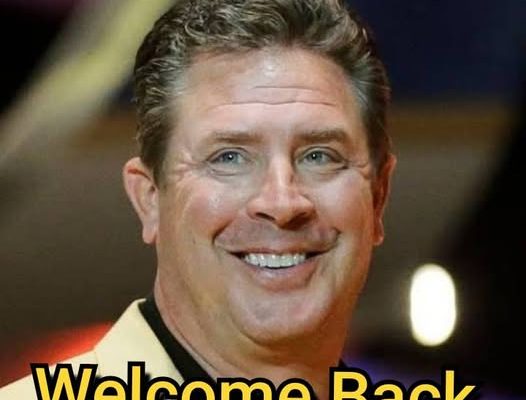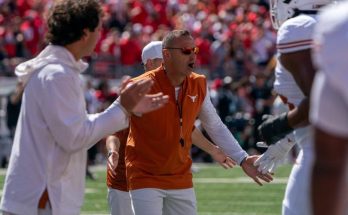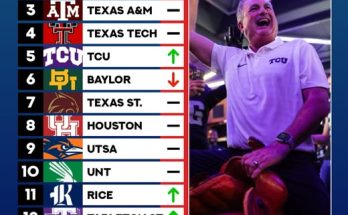The landscape of professional football is often defined not just by the new stars it creates each season but also by the timeless legends whose influence continues to echo through locker rooms, boardrooms, and front offices. When news broke recently that Miami Dolphins Chairman Stephen M. Ross had expressed a serious interest in bringing back the iconic Dan Marino in a significant offensive leadership role, it triggered immediate waves of intrigue, nostalgia, and debate across the entire NFL community. The announcement isn’t just a headline—it’s a potential shift in the Dolphins’ organizational culture and competitive trajectory. For fans and observers alike, this proposed reunion between a franchise and its most celebrated son feels like both a natural progression and a bold gamble.
Dan Marino, widely considered one of the greatest quarterbacks in NFL history, spent his entire illustrious 17-year career with the Miami Dolphins. Drafted in 1983, Marino quickly redefined what a passing quarterback could be in the modern NFL. His arm strength, quick release, and uncanny field vision made him a terror for defensive coordinators. But beyond the numbers—and they were staggering, including 61,361 career passing yards and 420 touchdowns—Marino symbolized the golden era of Miami football, an era that has often eluded replication in the years following his retirement. Though he never won a Super Bowl, his impact was transcendent. He gave the Dolphins a national identity, he reenergized a fan base, and he left an indelible mark on the game itself.
In the years since Marino’s retirement, the Dolphins have had moments of promise but never sustained success. From rotating coaching staffs to an ever-evolving quarterback carousel, Miami has spent decades trying to rediscover its winning formula. That struggle perhaps explains why Stephen Ross, a man known for both his ambition and willingness to experiment, sees Marino as more than just a symbolic figurehead. He sees him as someone who can reshape the Dolphins’ offensive philosophy from the inside out.
The idea of Marino taking on an offensive advisory or strategic leadership role is not entirely new. In fact, Marino has had brief stints with the organization post-retirement in both public relations and advisory capacities. However, these were generally ceremonial or loosely defined roles that lacked significant decision-making power. This new offer, according to insiders, would be entirely different. Ross reportedly envisions Marino playing an integral part in designing and evaluating offensive schemes, working closely with the quarterback room, and serving as a liaison between the coaching staff and front office on offensive personnel decisions. In other words, not just a mentor—but a strategist.
Such a move comes at a fascinating time for the Dolphins. Under head coach Mike McDaniel, Miami has seen a resurgence in offensive output, especially with Tua Tagovailoa under center and explosive weapons like Tyreek Hill and Jaylen Waddle lighting up the stat sheet. Yet, critics argue that the offense still lacks consistency against top-tier competition. Marino’s involvement could offer a new dimension to the Dolphins’ offensive attack—something rooted in deep experience and a genuine understanding of what it means to wear that teal and orange jersey.
The potential benefits of Marino’s return are numerous. First and foremost, his presence commands respect. For young players—particularly quarterbacks—having Marino in the building is both a learning opportunity and an inspirational benchmark. Quarterbacks in today’s NFL often benefit from working with former QBs turned coaches, and Marino’s voice in Tua’s development could be immeasurable. Marino understands the intricacies of pocket management, pre-snap reads, and high-pressure decision-making. These are not merely things that can be learned from textbooks or even film—these are instincts honed over years on the field, and Marino’s ability to articulate and mentor through those experiences could be a game-changer.
Secondly, Marino has a mind for innovation. Though he played in an era before the spread offenses and RPOs of today, he was always a cerebral quarterback, constantly pushing the envelope with his pre-snap reads and audibles. Many forget that the 1984 Dolphins offense, under Marino’s leadership, was among the most aggressive passing attacks in history. Imagine infusing that kind of boldness into Miami’s current offense—a unit that at times plays conservatively despite having elite speed. Marino could be the creative offensive mind that helps McDaniel push the system into a new tier of explosiveness and unpredictability.
It’s also important to recognize the cultural value of bringing Marino back in a serious role. The Dolphins, like many storied franchises, have often leaned on their past to galvanize the present. However, this hasn’t always translated into on-field success. Too often, the legacy of the 1972 undefeated season or Marino’s golden arm has been used as a marketing device rather than a developmental asset. Ross seems intent on changing that. By empowering Marino with real influence, he signals that the team’s history isn’t just for museum walls—it’s a resource to be mined for competitive advantage.
Of course, there are risks involved. Marino, for all his brilliance as a player, does not have an extensive background in coaching. The transition from field to front office or sideline is not always seamless. Football history is littered with legends who struggled to translate their knowledge into effective leadership roles. Think of players like Mike Singletary or even Magic Johnson in basketball—a genius on the court doesn’t always make for a genius in the boardroom or on the headset.
Moreover, there’s the question of chain of command. McDaniel is a young, innovative coach with his own philosophy and systems. Integrating a powerful voice like Marino’s into that structure requires finesse. The last thing Miami needs is a clash of egos or conflicting visions. Ross and the front office would need to carefully define Marino’s responsibilities to ensure clarity and cohesion across the leadership structure. The best-case scenario is a collaborative relationship where Marino’s ideas complement McDaniel’s schemes rather than override them.
Then there’s the public perception. Fans will inevitably put Marino on a pedestal—as they should. But that kind of pedestal brings pressure. If the offense struggles, some might blame Marino or expect him to fix things overnight. It’s crucial that both the organization and fan base understand that Marino’s value will be cumulative and developmental, not necessarily transformational from day one.
That said, few organizations have as iconic a figure as Marino still deeply connected to their identity. The Dolphins have an opportunity not just to honor their past, but to actively use it to shape their future. Think of John Elway’s impact on the Denver Broncos. Though his tenure as GM was a mixed bag, his understanding of what it meant to be a Bronco helped define a competitive culture that eventually led to a Super Bowl title. Marino could offer Miami a similar mix of intangible wisdom and tangible strategy.
From a broader NFL standpoint, Marino’s potential return represents a fascinating trend where teams are increasingly turning to former greats not just as ambassadors, but as functional strategists. With Tom Brady reportedly eyeing future ownership stakes and Peyton Manning heavily involved in content creation and talent evaluation, the league is seeing its legends pivot into multifaceted roles that influence everything from player development to media branding. Marino entering this space in a serious offensive role would not only serve Miami—it would set a precedent.
You also have to consider the educational ripple effect this move could create. Younger coaches and players will get firsthand access to one of the most advanced football minds of the past half-century. Marino’s approach to reading coverages, recognizing blitzes, and maintaining composure under duress could be systematized into teaching tools, playbook philosophy, and film study methods. This could be especially powerful in quarterback development, where mental mastery often lags behind physical skills.
For Marino himself, this opportunity could represent a personal renaissance. Though he has remained a public figure, he has never had the kind of sustained, impactful involvement with the Dolphins that many fans hoped for. This role could allow him to cement his legacy not just as the franchise’s best player, but also as one of its most important builders. If successful, Marino could become a model for other Hall of Famers seeking to return in meaningful, non-token capacities.
The Dolphins are at a pivotal moment in their history. They have a talented roster, a popular coach, and a city hungry for a return to football glory. Bringing back Dan Marino could be the missing piece—not just for on-field success, but for restoring a deeper organizational identity that blends history with ambition. It won’t be without challenges, but if handled correctly, the move could mark a turning point.
The most powerful franchises in sports are those that respect their past while building toward the future. With Ross reportedly making overtures to Marino, the Dolphins are signaling their readiness to do just that. It’s a bold vision, one filled with both hope and risk. But if anyone understands the stakes and the standards of Miami football, it’s Dan Marino. Whether or not this reunion becomes official, the message is clear: the Dolphins are no longer content to live in the shadow of their history. They’re ready to use it to light the way forward.



